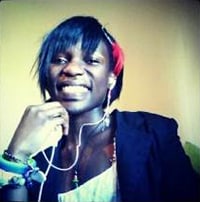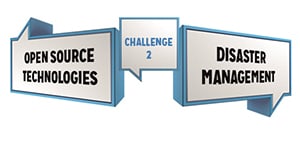 More than 200 entries from 48 countries worldwide, hundreds of ideas, comments and unique perspectives on the creation of local digital content, many hours of serious consideration by our panel of judges – and the winners of the ITU Telecom Young Innovators Competition 2014 Challenge 1: Local Digital Content have been selected!
More than 200 entries from 48 countries worldwide, hundreds of ideas, comments and unique perspectives on the creation of local digital content, many hours of serious consideration by our panel of judges – and the winners of the ITU Telecom Young Innovators Competition 2014 Challenge 1: Local Digital Content have been selected!
We were looking for the most promising tech start-ups aimed at inspiring the creation, aggregation or digitization of local content, whether through innovative technologies or a fresh angle on established technologies such as optical character recognition or translation software.
Demonstrating innovativeness, business potential and a clear social value proposition in meeting the Challenge, the winners chosen by our Selection Committee are:
 TeleMuseum – Lorna Okeng, Uganda
TeleMuseum – Lorna Okeng, Uganda
Telemusuem aims to preserve and digitalize African local content, culture and history often traditionally passed on through the ancient informal education of storytelling. Local script content and analogue voice content from various sources will be aggregated and converted into fully independent, virtual cinema using a range of technologies from optical character recognition to abstract graphics algorithms. This is bringing storytelling to life – and preserving local history for generations to come.
 Incept – Safouan Ben Jha, Tunisia
Incept – Safouan Ben Jha, Tunisia
Incept provides an interactive, multilingual solution for museums, historical and archaeological sites via augmented reality, including language translation, interactive guided tours, and adaptive content – all through a standard smartphone. By presenting content in a highly attractive, interactive manner, it enables you to experience history as never before – such as translating ancient Egyptian hieroglyphics on tombs or pyramids into your own language via the smartphone in your hands, or watching the construction of the Hanging Gardens of Babylon.
Explaining the motivation behind her start-up, Okeng said, “I worry that with no local content reservoir, two centuries from now, these traditional stories will be extinct. TeleMuseum aspires to redefine the way local content is accessed by aggregating local script and merging it into one big screening room. It embraces the concept of cinematography married with virtual reality, moulding each legend narrative into motion pictures all tied together to create a mini-film or documentary.”
Taking the boring out of history and making our past accessible, relevant and interesting for all is the drive behind Incept. According to Ben Jha, “We must learn from the past in order to know where our future is headed, but in order to make people excited about knowing the past, we have to present the content in a new manner.”
Both winners of this Challenge will attend ITU Telecom World 2014 in Doha, where they’ll benefit from seed funding, mentoring sessions, workshops, networking and showcasing opportunities before a high-profile audience from across the ICT ecosystem.
For Okeng, it’s an exciting prospect: “ITU Telecom Young Innovators Competition stimulates creativity and innovation and taps into the inner child. There is no doubt this is the type of platform I’ve been looking for, where technology marries art, a place where my background, young experience and skills can be put to use to make real things happen.”
Ben Jha has a clear idea of what Incept hopes to gain: ” Our team is made up of engineers, so our main goal now is to establish a solid business plan. We’re looking forward to gaining from the mentoring at ITU Telecom World, and meeting up with potential investors and partners. The only way to take our idea worldwide is by starting working immediately.”
Digital content, in the form of text, images, video, software or apps, is what drives the internet, empowering users to benefit from knowledge, opportunities and e services – and to generate their own content. So it’s critical that digital content is available to everyone, regardless of the language they speak or script they use. But only an estimated 5% of the over 7000 languages of the world are currently on the internet. The uphill battle to overcome this content divide is every bit as important as bridging the digital divide; access and content, supply and demand, are two sides of the same coin. That’s why this Challenge is so vital, and why it is so exciting to have found two winners of such high calibre to bring to the world stage at ITU Telecom World 2014 in Doha this December.
The second ITU Telecom Young Innovators Competition on Open Source Technologies for Disaster Management is open now – find out more here on how to take part!


 The current telco crunch is not new. Voice revenues have collapsed in developed and emerging markets alike, whilst data traffic from OTT players continues to increase exponentially. So costs are going through the roof just as revenues are vanishing. Life as telcos have known it is unsustainable – and change is inevitable.
The current telco crunch is not new. Voice revenues have collapsed in developed and emerging markets alike, whilst data traffic from OTT players continues to increase exponentially. So costs are going through the roof just as revenues are vanishing. Life as telcos have known it is unsustainable – and change is inevitable.
 Following the success of challenge 1 on Local Digital Content, which attracted 205 ideas from 48 countries, the ITU Telecom World Young Innovators competition is launching challenge 2, calling for innovations using open source technology for disaster management. The competition seeks 18-30 year old entrepreneurs from around the world with start-ups that use open source technologies for disaster preparedness, early warning, emergency communication and response, and recovery from natural disasters. If that describes your work, log on to
Following the success of challenge 1 on Local Digital Content, which attracted 205 ideas from 48 countries, the ITU Telecom World Young Innovators competition is launching challenge 2, calling for innovations using open source technology for disaster management. The competition seeks 18-30 year old entrepreneurs from around the world with start-ups that use open source technologies for disaster preparedness, early warning, emergency communication and response, and recovery from natural disasters. If that describes your work, log on to